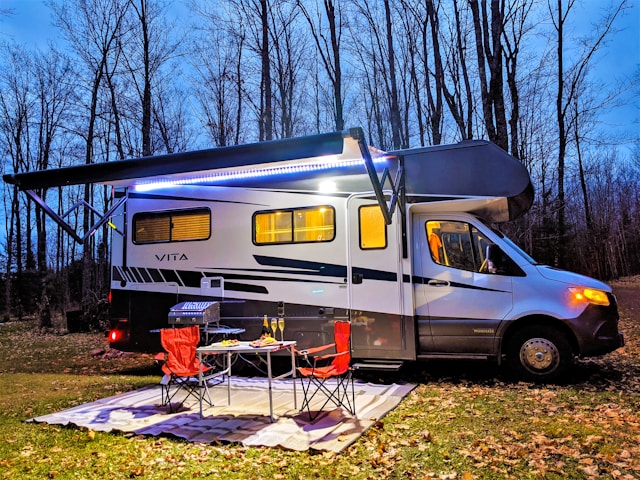
Rent Out Your RV and Earn Extra Money
cannon
- 0
Renting out an RV has become a popular way to earn extra money for RV owners. With the rise of peer-to-peer rental platforms, such as Outdoorsy and RVshare, it has never been easier to rent out your RV to people looking for a unique travel experience. RV owners can earn anywhere from a few hundred to several thousand dollars per month by renting out their RV.
The amount of money that can be earned by renting out an RV depends on several factors, including the type of RV, the location, and the rental duration. For example, owners of Class A RVs can earn as much as $3,000 per week, while owners of smaller RVs may only earn a few hundred dollars per week. Additionally, RV owners who live in popular tourist destinations or near major events may be able to charge higher rental rates than those who live in less desirable locations.
Renting out an RV can also be a great way to offset the costs of RV ownership. RVs can be expensive to maintain and store, and renting out an RV can help RV owners recoup some of these costs. Furthermore, renting out an RV can be a great way to meet new people and share the joys of RV travel with others.
Understanding RV Rental Platforms
Renting out an RV is a great way to earn extra income. There are several online platforms available to help RV owners rent out their vehicles. Here are some things to consider when choosing the right platform and setting up your listing.
Choosing the Right Platform
When choosing a platform, consider the fees, features, and customer service. Some of the most popular platforms for renting out RVs are RVshare, Outdoorsy, and CamperTravel. Each platform has its own fee structure, so it’s important to compare the fees and choose the one that best fits your needs.
RVshare charges a 15% commission fee, while Outdoorsy charges a 20% commission fee. CamperTravel charges a 3% commission fee. Additionally, some platforms charge a fee for additional services such as insurance, roadside assistance, and cleaning.
Features such as a mobile app, online booking, and customer support can also be important when choosing a platform. Consider the level of customer support that each platform offers, as well as the ease of use of their website or mobile app.
Setting Up Your Listing
Once you have chosen a platform, it’s time to set up your listing. A well-written and detailed listing can help attract more renters and increase your chances of earning more income.
Include high-quality photos of your RV, both inside and outside. Provide a detailed description of your RV, including its size, amenities, and any special features. Be sure to highlight any unique features that may make your RV stand out from others.
Set a competitive rental price based on the market and the condition of your RV. Consider the location, season, and demand when setting your rental price.
Finally, be sure to keep your calendar up to date to reflect your availability. Respond promptly to any inquiries or booking requests to provide excellent customer service and increase your chances of earning more income.
Maximizing Your RV’s Earning Potential
Optimizing Rental Rates
One of the most important factors in earning extra money by renting out your RV is setting the right rental rates. It is essential to research the market and determine the average rental rates for similar RVs in your area. You can use online platforms like RVezy, Outdoorsy, and RVshare to compare prices and get an idea of what renters are willing to pay.
When setting rental rates, it is important to consider the type and size of your RV, the amenities included, and the time of year. RVs with more amenities and larger sizes tend to command higher rental rates. Also, during peak travel seasons, you can charge more for your RV.
Another way to optimize rental rates is to offer discounts for longer rental periods. Many renters prefer to rent an RV for a week or more, and offering a discount for extended rentals can be an effective way to attract more renters.
Effective Marketing Strategies
To maximize your RV’s earning potential, it is essential to market it effectively. One of the most effective ways to market your RV is to create a detailed and attractive listing on online platforms like RVezy, Outdoorsy, and RVshare. Make sure to include high-quality photos of your RV, a detailed description of its amenities and features, and a clear and concise rental policy.
Another effective marketing strategy is to leverage social media platforms like Facebook and Instagram to promote your RV. You can create a dedicated page for your RV and share photos and information about it with your followers. You can also join RV rental groups on Facebook and share your listing with potential renters.
Finally, it is important to provide excellent customer service to your renters. Respond promptly to inquiries, be flexible with rental dates and times, and provide clear instructions on how to operate your RV. By providing exceptional customer service, you can increase the likelihood of repeat business and positive reviews, which can help you attract more renters and maximize your earning potential.
Managing Your RV Rental
When it comes to renting out your RV, managing the rental process is an essential part of ensuring that everything runs smoothly. Here are some key areas to focus on:
Scheduling and Availability
One of the biggest challenges of renting out your RV is managing the scheduling and availability of your vehicle. To make the process easier, consider using a rental management platform like RVshare, which allows you to set availability calendars and manage bookings all in one place. You can also use this platform to communicate with renters and handle payments.
Maintenance and Upkeep
Keeping your RV in good condition is important for both the safety of your renters and the longevity of your vehicle. Make sure to perform regular maintenance checks, such as inspecting the tires, brakes, and electrical systems, and keeping up with routine maintenance tasks like oil changes and fluid top-offs. You may also want to consider hiring a professional cleaning service to ensure that your RV stays in top condition between rentals.
Customer Service
Providing excellent customer service is key to ensuring that your renters have a positive experience and are more likely to recommend your RV to others. Make sure to communicate clearly with renters before and during their rental period, answering any questions they may have and providing detailed instructions for using your RV. You should also be available to address any issues that may arise during the rental period, such as mechanical problems or other issues that may require your attention.
Legal and Financial Considerations
Renting out an RV can be a great way to earn extra income. However, it’s important to consider the legal and financial implications before listing your RV for rent. This section will cover two important considerations: insurance and liability, and tax implications and reporting.
Insurance and Liability
Before renting out an RV, it’s important to review your insurance policy to ensure that you have adequate coverage. Most insurance policies do not cover commercial use of an RV, so you may need to purchase additional coverage. Many peer-to-peer rental platforms, such as RVshare and Outdoorsy, offer liability insurance to their users. However, it’s important to review the terms of the policy carefully and to understand your responsibilities as the RV owner.
In addition to insurance, it’s important to consider liability issues. As the RV owner, you may be held liable for any damages or injuries that occur during the rental period. To protect yourself, it’s important to have a clear rental agreement that outlines the responsibilities of both parties. The agreement should include information about the rental period, the rental fee, and any rules or restrictions that apply to the rental.
Tax Implications and Reporting
Renting out an RV can have tax implications, so it’s important to understand the rules and regulations. According to the IRS, rental income is generally taxable, and you may need to report the income on your tax return. However, you may also be able to deduct certain expenses related to the rental, such as maintenance and repairs, insurance premiums, and rental platform fees.
To ensure that you are in compliance with tax laws, it’s important to keep accurate records of all rental income and expenses. This includes keeping track of rental payments, expenses related to the RV, and any taxes paid. It’s also a good idea to consult with a tax professional to ensure that you understand the tax implications of renting out your RV.
Overall, renting out an RV can be a great way to earn extra income. However, it’s important to consider the legal and financial implications before getting started. By reviewing your insurance policy, understanding liability issues, and staying on top of tax regulations, you can ensure that your rental business is successful and profitable.
Related
Post Disclaimer
The information contained in this post is for general information purposes only. The information is provided by me and while we endeavor to keep the information up to date and correct, we make no representations or warranties of any kind, express or implied, about the completeness, accuracy, reliability, suitability or availability with respect to the website or the information, products, services, or related graphics contained on the post for any purpose.

